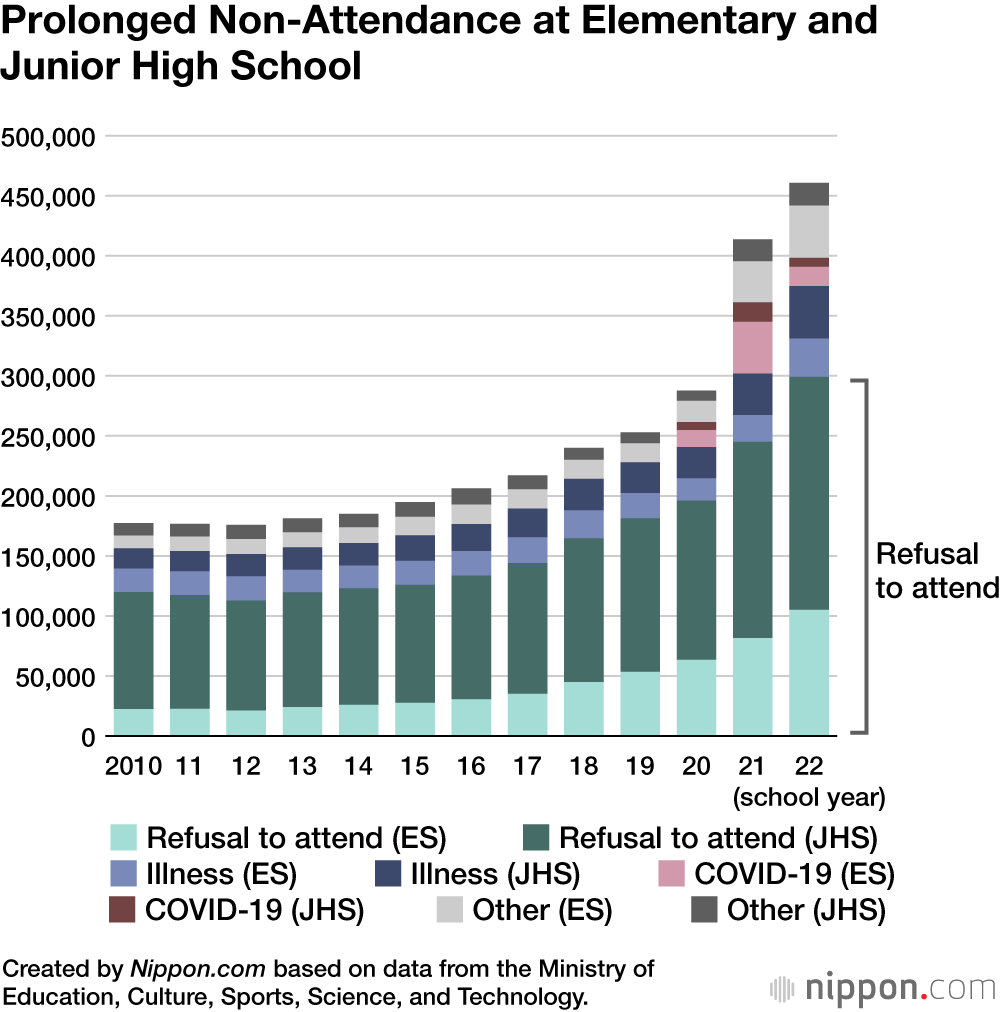
Pandemic Disruption Leads to Record School Absenteeism in Japan in 2022
Education Society Family- English
- 日本語
- 简体字
- 繁體字
- Français
- Español
- العربية
- Русский
The results of a survey on problematic behavior and non-attendance of school children by the Ministry of Education, Culture, Sports, Science, and Technology showed that in 2022 the number of students who refused to attend school for 30 days or more increased from the previous year by 54,108 (22.1%) to a new record high of 299,048. This marks the tenth consecutive annual rise and, when compared to 10 years ago, non-attendance has risen 3.6-fold for elementary school students and 2.1-fold for junior high school students.
Looking at non-attendance by education level, there were 105,112 elementary school students (up 29.0% from the previous year) and 193,936 junior high school students (up 18.7%). This accounts for 3.2% of all students. At 51.8%, the most common reason for non-attendance was “lethargy and anxiety,” followed by 11.4% for “disrupted life rhythms, playing around, and delinquency,” and 9.2% for “friendship issues other than bullying.”
This is thought to be the impact of the COVID-19 pandemic causing disruptions in routines, such as through school closures and cancellation of school events, which lowered the psychological barrier to non-attendance as well as leading to a fall in motivation to attend as it had become difficult to form friendships.
Overall, for both elementary and junior high levels, the ratio refusing to attend was 31.7 per 1,000 students. There were 165,669 students who were absent for over 90 days, which at 55.4%, accounted for more than half of those refusing to attend school.
(Translated from Japanese. Banner photo © Pixta.)



